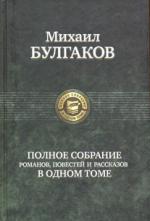|
This section contains 5,737 words (approx. 20 pages at 300 words per page) |

|
SOURCE: "Structure and Meaning in Bulgakov's The Fatal Eggs,'" in Russian Literature Triquarterly, No. 15, 1978, pp. 263-79.
In the following essay, McLaughlin explores the "narrative mechanism" that Bulgakov uses to relate the events of "The Fatal Eggs, " thereby demonstrating that the story is not only a social satire but also a commentary on moral and philosophical issues.
The critics—irrespective of their political stand—characterize "The Fatal Eggs" inevitably and not incorrectly as a social satire. But to view the story exclusively as a social satire is to ignore a number of textual features which strongly suggest that Bulgakov's concerns were moralphilosophical at least as much as social-satirical. The social-satirical interpretation of the story singles out those incidents that show how a society totally inefficient in all its public functions exploits, mistreats, and kills its greatest genius. Yet it ignores the obtrusive fact that the scientist-hero Persikov is...
|
This section contains 5,737 words (approx. 20 pages at 300 words per page) |

|


